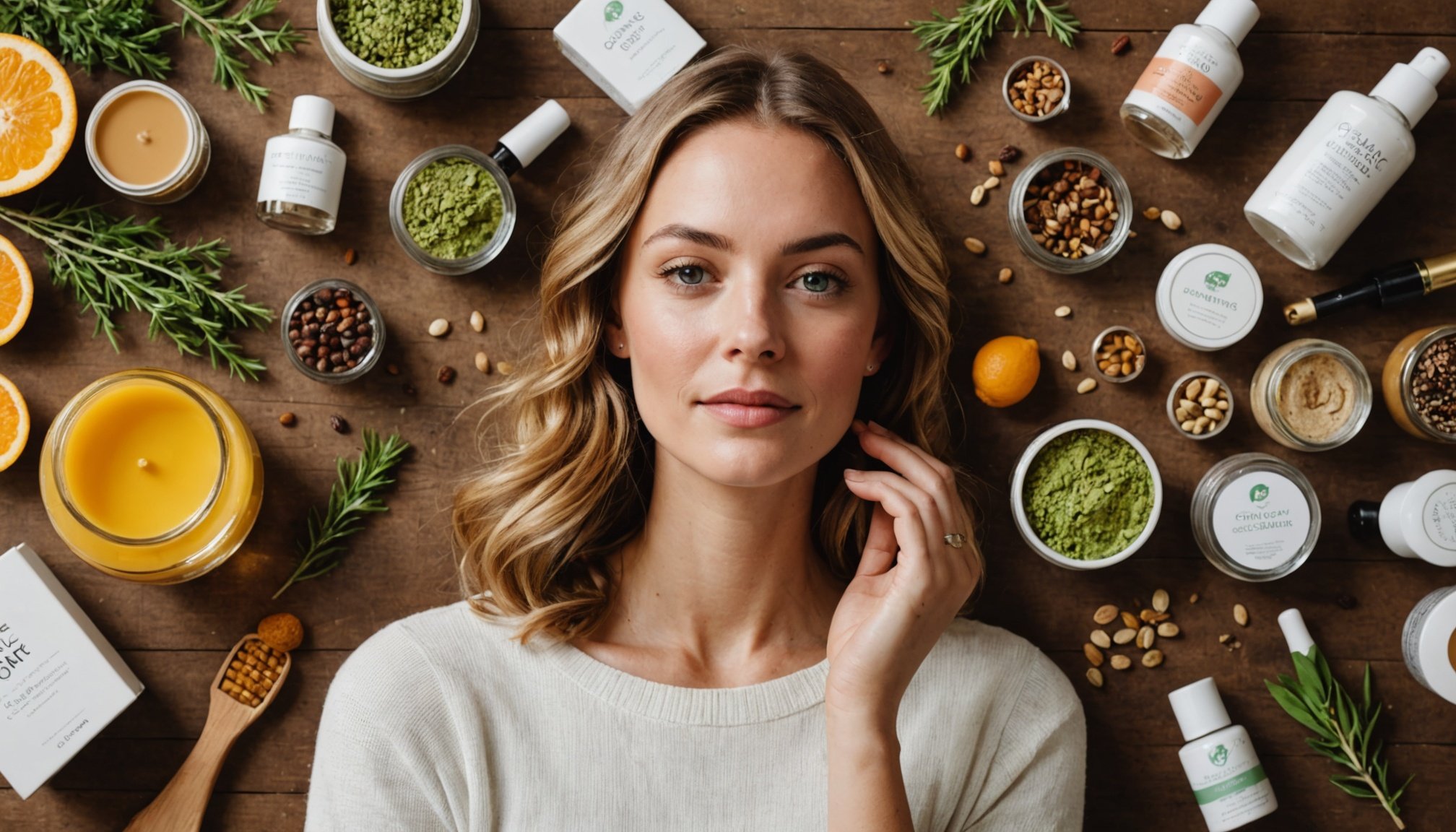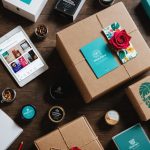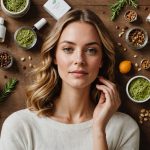Unlocking Consumer Power: Dynamic Content Marketing Tactics for UK Organic Beauty Brands
In the ever-evolving landscape of the beauty industry, UK organic beauty brands are facing a unique set of challenges and opportunities. To stand out and thrive, these brands must leverage dynamic content marketing tactics that resonate deeply with their target audience. Here’s a comprehensive guide on how to do just that.
The Power of Social Media in Beauty Marketing
Social media has become the heartbeat of modern beauty marketing, transforming how brands engage with their audience and build their brand identity. For UK organic beauty brands, platforms like Instagram, TikTok, and YouTube are not just tools, but essential components of their marketing strategy.
In the same genre : Unveiling Flavour: How UK Artisan Cheese Shops Can Harness Blogging to Identify Ideal Pairings
Leveraging Instagram for Visual Storytelling
Instagram, with its visual-centric approach, is a perfect match for beauty brands. Around 4 in 5 beauty shoppers use Instagram daily, making it a crucial platform for connecting with customers[1].
- Visual Content: Brands like Kylie Cosmetics, with over 25 million followers, dominate Instagram by posting high-quality, visually appealing content. This includes product showcases, behind-the-scenes looks, and user-generated content (UGC)[1].
- Influencer Partnerships: Influencers play a critical role in social media marketing. For instance, beauty influencers like Huda Kattan, with over 50 million followers, can significantly boost a brand’s visibility and trustworthiness[1].
- Engagement: Brands like Sephora take a diversified approach to creator marketing, working with a wide range of influencers to gain visibility and build a loyal community. This strategy helps in earning more organic content than paid, which is crucial for long-term brand growth[2].
Harnessing TikTok for Trend-Setting Content
TikTok has emerged as a pivotal player in the beauty world, setting trends and dictating market dynamics. Here’s how UK organic beauty brands can harness its power:
Also read : Harnessing LinkedIn to Propel UK Eco-Friendly Brands: Proven B2B Strategies for Success
- Short-Form Videos: TikTok’s short-form video format is ideal for quick tutorials, product demos, and trend showcases. Brands can create content that is not only visually compelling but also deeply relatable, encouraging users to share and recreate[5].
- User-Generated Content: Encouraging customers to create and share their own content using brand products can generate a significant amount of engagement. For example, a brand could launch a hashtag challenge that encourages users to show how they use their products, fostering a sense of community and brand loyalty[5].
The Rise of Influencer Marketing
Influencer marketing is a cornerstone of modern beauty marketing, and for good reason. Here’s why it’s so effective and how UK organic beauty brands can leverage it.
The Role of Micro-Influencers
Micro-influencers, with their niche audiences and higher engagement rates, are reshaping beauty marketing. Here are some key insights:
- Higher Engagement Rates: Micro-influencers average an engagement rate of 3-8%, significantly higher than mega-influencers’ 1-2%. This means their content resonates more deeply with their followers, driving authentic conversations and actions[4].
- Authenticity and Trust: Micro-influencers maintain closer relationships with their followers, making their recommendations more impactful. In the beauty industry, where trust is paramount, this connection can turn viewers into customers[4].
- Cost-Effectiveness: Collaborating with micro-influencers is often more cost-effective than working with mega-influencers. A campaign involving 10 micro-influencers can outperform a single mega-influencer collaboration in terms of reach, engagement, and conversions, all for a lower investment[4].
Case Study: Sephora’s Diversified Influencer Strategy
Sephora is a prime example of a brand that has successfully leveraged influencer marketing. Here’s what they do differently:
- Diversified Approach: Sephora works with creators of all sizes, from macro-influencers to micro-influencers. This diversified approach helps them gain visibility and build a large, established creator community[2].
- Partnerships with Celebrity Brands: Sephora also partners with celebrity beauty brand owners like Selena Gomez and Rihanna, which adds to their brand visibility and trust[2].
Content Marketing Strategies for Organic Beauty Brands
Content marketing is about creating valuable, relevant, and consistent content to attract and retain a clearly defined audience. Here are some strategies that UK organic beauty brands can use.
Focusing on Sustainability and Eco-Friendliness
With the increasing awareness of environmental issues, sustainability has become a key trend in the beauty industry. Here’s how brands can capitalize on this:
- Sustainable Product Showcases: Brands can create content showcasing their sustainable and eco-friendly products. For example, videos highlighting the use of natural ingredients, recyclable packaging, and ethical sourcing practices can resonate well with consumers who prioritize sustainability[1].
- Educational Content: Providing educational content on the benefits of sustainable beauty practices can position the brand as an authority in the field. This could include blog posts, videos, or social media series on how to live a more sustainable beauty lifestyle[5].
Leveraging User-Generated Content (UGC)
UGC is a powerful tool for building trust and engagement. Here’s how UK organic beauty brands can use it effectively:
- Encouraging Customer Contributions: Brands can encourage customers to share their own experiences and photos/videos using the brand’s products. This can be done through social media campaigns, email newsletters, or even in-store promotions[5].
- Showcasing UGC: By showcasing UGC on their social media channels, websites, and marketing materials, brands can create a sense of community and authenticity. For example, Virgin Holidays’ #SeizeTheHoliday campaign, which showcased customer photos, led to a 260% increase in bookings[3].
Market Research and Consumer Insights
Understanding consumer behavior and preferences is crucial for any marketing strategy. Here’s how UK organic beauty brands can use market research and consumer insights to their advantage.
Understanding Consumer Behavior
Consumer behavior in the beauty industry is driven by various factors, including trends, personal values, and recommendations from influencers.
- Trend Analysis: Keeping an eye on the latest trends in the beauty industry can help brands stay relevant. For instance, the rise of “makeup transformation” videos and sustainable beauty products indicates a shift towards more creative and eco-conscious consumer behavior[1].
- Consumer Values: Consumers, especially younger generations, are increasingly prioritizing sustainability, cruelty-free products, and ethical sourcing. Brands that align with these values are more likely to gain consumer trust and loyalty[5].
Using Data for Personalized Marketing
Data analytics can provide valuable insights into consumer behavior, helping brands to personalize their marketing efforts.
- Segmentation: By segmenting their audience based on demographics, preferences, and behavior, brands can create targeted marketing campaigns that resonate more deeply with their consumers.
- Personalized Content: Using data to create personalized content can enhance customer engagement. For example, sending personalized email newsletters with product recommendations based on a customer’s purchase history can increase the likelihood of a repeat purchase.
Table: Comparing Influencer Marketing Strategies
Here’s a comparative table highlighting different influencer marketing strategies used by top beauty brands:
| Brand | Influencer Strategy | Key Partners | Engagement Approach |
|---|---|---|---|
| Sephora | Diversified approach with macro and micro-influencers | Selena Gomez, Rihanna | Organic content, large creator community[2] |
| L’Oréal | Paid strategy with household names | Kendall Jenner, Bethenny Frankel | Paid content, celebrity endorsements[2] |
| Kylie Cosmetics | Leveraging celebrity owners | Kylie Jenner, Kris Jenner | High reliance on celebrity following[2] |
| Rare Beauty | Balanced approach with micro and macro-influencers | Selena Gomez | Loyal community of creators, mission-driven content[2] |
| Fenty Beauty | Mixed strategy with micro and macro-influencers | Rihanna | Balanced approach, community-driven content[2] |
Practical Insights and Actionable Advice
Here are some practical tips and actionable advice for UK organic beauty brands looking to enhance their content marketing strategies:
Building a Strong Online Presence
- Web Design: Ensure your website is user-friendly and visually appealing. Brands like LV= have successfully created websites that are approachable and informative, making it easy for customers to navigate and find what they need[3].
- Content Quality: Focus on creating high-quality, engaging content that tells a story. Burberry’s use of authentic imagery and natural poses in their campaigns is a great example of how to connect with a younger audience[3].
Engaging with Your Audience
- Social Media Engagement: Regularly engage with your audience on social media. Respond to comments, answer questions, and use social listening to understand consumer concerns and preferences.
- Influencer Partnerships: Partner with influencers who genuinely align with your brand’s values and products. This authenticity is crucial for building trust with your audience[4].
Staying Ahead of Trends
- Market Research: Stay updated with the latest trends in the beauty industry. Use market research to understand consumer behavior and preferences, and adjust your marketing strategies accordingly.
- Innovation: Innovate and adapt to new trends. For example, integrating technology and sustainability into your products and marketing strategies can help you stay ahead in the market[5].
In the competitive world of the beauty industry, UK organic beauty brands need to be innovative and strategic in their marketing approaches. By leveraging social media, influencer marketing, and content marketing, these brands can build strong connections with their consumers, drive engagement, and ultimately achieve brand growth.
As Kayla Quock, Director of Brand Marketing at Traackr, noted, “There are many different ways to approach influencer marketing that can deliver results for a beauty brand.” The key is to find the strategies that best align with your brand’s values and mission, and to continuously adapt to the evolving trends and consumer insights in the market.
By focusing on sustainability, authenticity, and personal connections, UK organic beauty brands can unlock the full potential of their consumer base and thrive in a dynamic and ever-changing industry.











